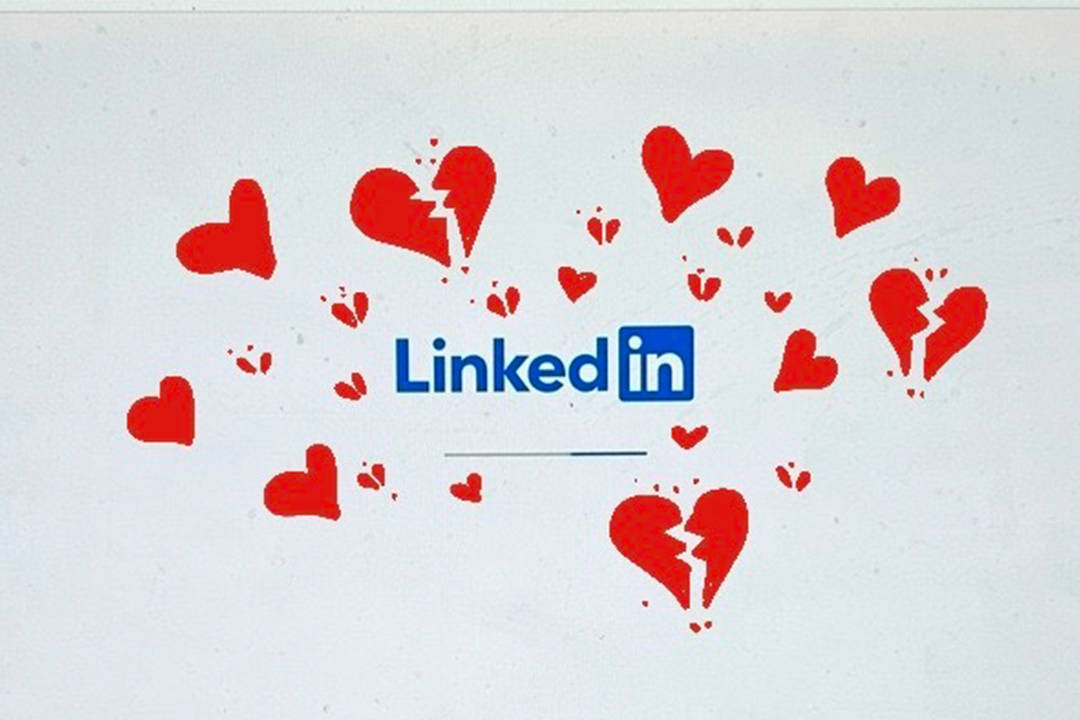My friend once told me that LinkedIn gives them imposter syndrome. Like any other social media app, LinkedIn helps create unhealthy standards of lifestyles we should be living. On LinkedIn, we must all be happy for each other’s achievements while adding as many bells and whistles to our profiles, to stand out and present the best version of ourselves at all times. Our professional career rests upon the platform, but we are being monitored by each other and potential recruiters. It is tiring.
A recent article published by The Cut argues that “Gen Z has become one of the fastest-growing demographics on LinkedIn.” Younger users, who are tired of the constant need for attention and popularity from others on more popular social media platforms like Instagram, seem to see it as a productive space to share content. However, my experience and discussions with fellow university students paint a different picture, and I believe LinkedIn isn’t actually so much better than other types of social media.
In conversations with my friends, a lot of them told me that LinkedIn makes them feel underachieving and worse about themselves. We often hear about how social media is a highlight reel of our lives, and I see LinkedIn as no different. The goal of being on LinkedIn is to create a highlight reel of our professional lives to catch the eyes of recruiters and hopefully secure employment in a company to further build up our portfolios. In my view, being on LinkedIn is a constant chase of looking for better opportunities.
The bigger the network, the better?
I would argue that when users are networking, LinkedIn can be as insincere as most social media platforms. On Instagram, some people follow the follow-back culture, where someone follows you and you follow them back. On LinkedIn, that culture is automatic, because when you accept someone’s request to connect with you, it means you also follow them now. This makes sense, as a connection should be a two way street — but I believe this function leads to large networks that are impersonal and lack significant connections.
The amount of connection requests one can receive can be overwhelming, and some will blindly accept because, like other social media platforms, a larger network is supposed to be better than a smaller one. And while LinkedIn prompts users to send a message to others they have recently connected with, I doubt many people actually do this, because, once again, I think most people are looking to expand their network, not deepen their connections. I believe this superficial perspective toward LinkedIn connections is why we lose the opportunity to make genuine connections that have meaning.
One upside of LinkedIn that I think could be argued by its proponents is the lack of trolls. You can safely post your accomplishments without randomUser_37292 diminishing your achievements, because Linkedin does not allow users to use fake names or pseudonyms that do not accurately reflect their real names.
I believe another reason for the lack of trolls on LinkedIn is due to the professional culture the platform has. Your LinkedIn profile is associated with your professional capabilities. Your profile is your professional presence and you represent the organization you work for through your LinkedIn. So, users will generally attempt to be on their best behaviour.
The professional nature of LinkedIn also comes with its downfalls, though. While I didn’t come across any stories of individuals getting fired because of something they posted on LinkedIn, a CNBC article reported that hiring managers warn professionals to keep their LinkedIns clean and professional as they will look up employees on LinkedIn to get a feel for their presence before hiring them. The downside to this is that a lack of a LinkedIn account or an “established presence online” might also be able to cost you a job.
Similar to businesses researching potential partners on social media, hiring managers want to do their research on you before extending an offer, and the lack of an online presence can mean lack of an offer. I think the direct connection between online presence to employability is quite absurd, and I believe it adds to why LinkedIn is indeed like the other social media apps. LinkedIn is just better at hiding it.
Imposter syndrome from inflated profiles
When I talked to my friends, we all shared sentiments that LinkedIn makes us feel overwhelmed, like we are underachievers, and that we are not using our resources properly. It can make it harder to celebrate your own accomplishments when you see others who are your age, in your program, or in a similar demographic doing better than you are.
I find myself in that boat often. It seems that my own life is mundane compared to others on LinkedIn. Posting about my achievements seems pathetic when I see others in my network doing more than I am.
To people who find themselves in my predicament, I have comforting words for us. Just as you will hear people inflate their resumes, people will inflate their LinkedIns. A study by Jamie Guillory and Jeffrey T. Hancock published in Cyberpsychology, Behavior, and Social Networking sought to answer how truthful individuals are on their LinkedIn. The study found that participants lied roughly three times on average on their profiles, with participants writing deceitful statements on their abilities and interests.
I believe that the fabrication of LinkedIn profiles brings us back to how social media is a highlight reel of our lives — just as LinkedIn is. LinkedIn is truly not too different from the other girls.
Mari Khan is a second year student at UTM studying social sciences. She is the Sustainability Coordinator for the UTM Student Union and Opinion Associate Editor for The Medium.



No comments to display.